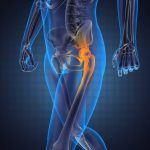 Surgery is a pretty intense experience, and whilst we all like to think it will inevitably have positive results, this isn’t always the case. A British program that set out to examine the success rate hip and knee replacements or groin hernia repair has resulted in a new tool being developed that aims to predict whether we’ll benefit from the surgery or not.
Surgery is a pretty intense experience, and whilst we all like to think it will inevitably have positive results, this isn’t always the case. A British program that set out to examine the success rate hip and knee replacements or groin hernia repair has resulted in a new tool being developed that aims to predict whether we’ll benefit from the surgery or not.
The tool, which was built by researchers from the University of York, was based upon feedback from around 800,000 patients and provides patients with detailed feedback on how they might feel after the surgery takes place.
Looking to the future
The tool provides users with a summary of how other patients have felt before and after surgery, together with a breakdown of their health problems and their demographic information.
The large quantity of data allows the tool to provide a fairly close match between the user and those like them that have previously undergone the surgery that lies in wait for them. It can then inform the user how those past patients felt after they’d had the surgery in ways such as their mobility, mental health and ability to complete simple tasks like washing and dressing.
The tool is designed to be as easy to use as possible, and can be completed either at home or with your doctor. The ultimate aim is to help patients have the best information possible before committing to such challenging procedures. Until now, it is the kind of information that simply hasn’t been available, with doctors ill equipped to provide anything but the most generic of advise.
Likewise, official sources of information also tend to deal in generalizations, rendering them ill suited to answer the questions of people who want answers pertaining to their specific circumstances, not the ‘norm’.
It’s a nice example of how large quantities of data can be managed in such a way as to help us make better, more informed choices over our healthcare. Of course, it’s probably rare that someone will change their decisions on the basis of what they find, but it might provide them with valuable reassurance that things will work out okay for them, which is value enough.